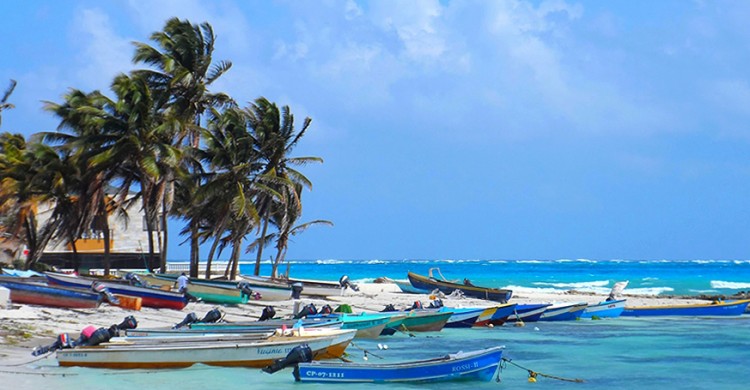
Commercial and artisanal fishermen of the Colombian islands of the San Andres archipelago were directly affected by the recent International Court of Justice ruling that shifted maritime borders between Colombia and Nicaragua, cutting off access to traditional fishing grounds.
As a result, a new effort to develop ecologically responsible aquaculture on the islands is underway, paying particular attention to environmental impacts because the islands are located within the Seaflower Biosphere Reserve, a vast marine protected area (MPA) that includes the second largest barrier reef in the Western Hemisphere.
National Centers for Coastal Ocean Science (NCCOS) researcher Dr. Ken Riley participated in a special program to share expertise with coastal managers and community leaders in Colombia on aquaculture development and marine spatial planning. Research emerging from NCCOS and the National Ocean Service supports a growing body of evidence suggesting aquaculture operations that are appropriately sited and responsibly managed have minimal impacts on the environment.
Dr. Riley assisted Colombian government officials and coastal managers in the preparation of policy, legislation, and a strategic plan for sustainable aquaculture development in the San Andres Archipelago. The collaboration will also provide NOAA with the opportunity to validate aquaculture best practices, including carrying capacity, environmental monitoring, and modeling tools in an MPA setting. The lessons learned in Colombia will be especially useful for the U.S. Caribbean and Gulf of Mexico.
The island of San Andres will focus on large marine cage culture operations with fast-growing pelagic species such as cobia, Rachycentron canadum, or amberjack, Seriola spp.
On Providencia, the stakeholders will develop small-scale aquaculture projects that will remain community owned and operated, keeping decision-making in the hands of traditional fishermen and their families.
For more information, contact Ken.Riley@noaa.gov.
